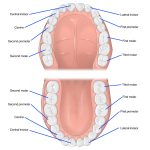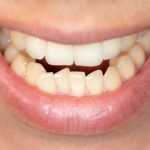Boost Your Dental Health: Discover Which Vitamin is Best for Your Teeth

A healthy and bright smile is something that everyone desires. However, achieving optimal dental health requires more than just brushing and flossing regularly. A balanced diet rich in vitamins and minerals is essential for maintaining healthy teeth and gums. Among the many vitamins that benefit dental health, one stands out as particularly important: vitamin C. In this article, we will explore the benefits of vitamin C for dental health and discuss other essential vitamins that can help boost your oral hygiene. Vitamin C, also known as ascorbic acid, is a powerful antioxidant that supports the immune system and helps to fight against infections. But did you know that this essential vitamin can also improve the health of your teeth and gums? Vitamin C plays a crucial role in the production of collagen, a protein that provides the structure and support for bones, tendons, and ligaments. Collagen is also a vital component of the connective tissues that hold teeth in place, making vitamin C essential for maintaining healthy gums and preventing tooth loss. In addition, vitamin C has antimicrobial properties that help to kill harmful bacteria in the mouth, reducing the risk of gum disease and tooth decay.
Dental health is an essential aspect of overall health and well-being. Poor dental hygiene can lead to a variety of dental problems, including tooth decay, gum disease, and bad breath. These issues can have significant effects on a person’s overall health, as they can cause discomfort, pain, and even lead to tooth loss. In addition, poor dental health has also been linked to a range of other health conditions, including heart disease, diabetes, and respiratory infections. Therefore, it is crucial to maintain good dental hygiene practices, such as brushing and flossing regularly, and getting regular dental check-ups to prevent any dental issues and keep your teeth and gums healthy.
Vitamins play a crucial role in maintaining healthy teeth. Vitamin C, for example, is essential for maintaining healthy gums and preventing gum disease. It helps in collagen production, which is a vital component of gum tissue. Vitamin D is also necessary for strong and healthy teeth. It aids in the absorption of calcium and phosphorus, which are essential minerals for tooth development and maintenance. Vitamin A is also important for oral health as it helps in the formation of tooth enamel. A deficiency in any of these crucial vitamins can lead to various dental problems, including tooth decay, gum disease, and weakened teeth. Therefore, ensuring that you get a sufficient amount of vitamins through a balanced diet or supplements is essential for maintaining optimal dental health.
Vitamin D
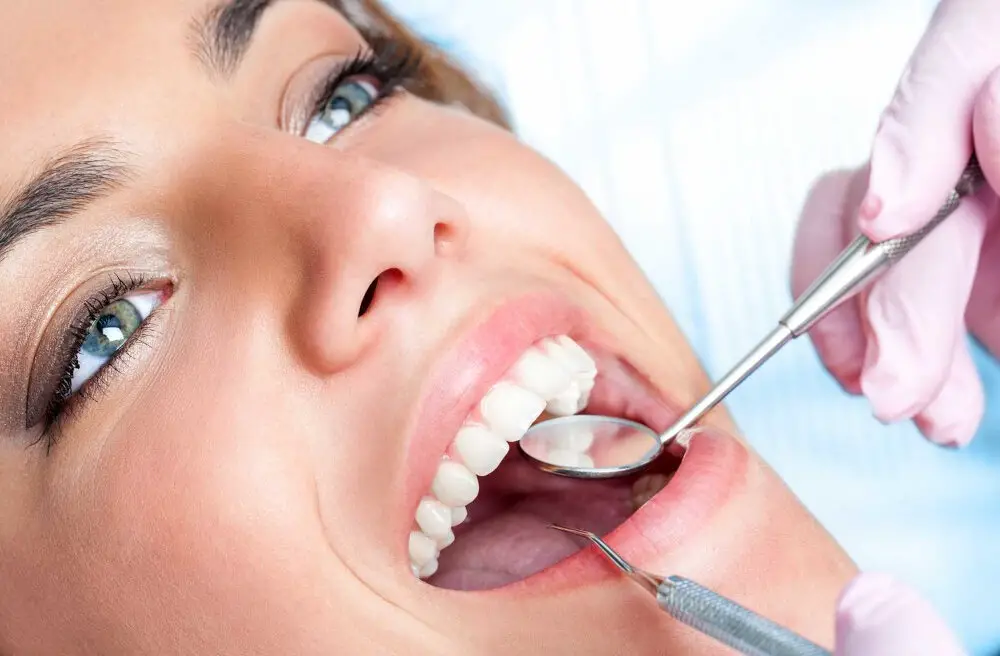
Vitamin D is a critical component for maintaining good oral health. It helps to promote the absorption of calcium and phosphate, which are essential for strong teeth and bones. Vitamin D also helps to regulate the immune system, which can help to prevent gum disease. Unfortunately, many people are deficient in this important vitamin, which can lead to a host of dental problems. In fact, research has shown that people with low levels of vitamin D are at a higher risk of developing cavities, gum disease, and tooth loss. There are a few ways to increase your intake of vitamin D. One of the easiest ways is to spend more time in the sun. Your skin can produce vitamin D when it’s exposed to the sun’s ultraviolet rays. However, it’s important to be mindful of the risks of sun exposure and to take precautions to protect your skin from damage. You can also get vitamin D from certain foods, such as fatty fish, egg yolks, and fortified dairy products. If you’re concerned that you’re not getting enough vitamin D, you may want to consider taking a supplement. A dental professional or healthcare provider can help you determine the appropriate dosage for your needs.
Vitamin D, also known as the sunshine vitamin, plays a critical role in maintaining dental health. It helps to regulate calcium and phosphate levels, which are essential for healthy teeth and bones. Vitamin D aids in the absorption of calcium and phosphate from the diet, ensuring that they are readily available for remineralization of the tooth enamel. This remineralization process helps to strengthen and protect the teeth against decay and erosion. Additionally, studies have shown that Vitamin D deficiency is linked to an increased risk of periodontal disease, a severe gum infection that can cause tooth loss. Therefore, maintaining adequate levels of Vitamin D through a balanced diet or supplements is crucial for maintaining optimal dental health.
Vitamin D is an essential nutrient for maintaining healthy teeth and bones. While the sun is the most significant source of vitamin D, foods such as fatty fish, egg yolks, cheese, and mushrooms can also provide this vital nutrient. Additionally, some fortified dairy and nondairy milk, orange juice, and cereals contain vitamin D. For those who do not consume enough vitamin D through their diet, supplements are also available. However, it is essential to consult with a healthcare professional before taking any supplements to ensure proper dosage and avoid negative side effects. By incorporating vitamin D-rich foods or supplements into your daily routine, you can help strengthen your teeth and improve your overall dental health.
Recommended daily intake refers to the amount of a particular nutrient or vitamin that a person should consume in a day to maintain good health. When it comes to dental health, it is essential to pay attention to the recommended daily intake of vitamins and minerals that help protect and strengthen teeth. Vitamin C, for example, is a powerful antioxidant that helps fight off bacteria and inflammation in the mouth. The recommended daily intake of vitamin C is around 75-90mg per day for adults. Similarly, vitamin D is essential for proper calcium absorption, which is crucial for strong and healthy teeth. The recommended daily intake of vitamin D is around 600-800 IU per day for adults. Meeting the recommended daily intake of these vitamins and minerals can go a long way in improving your overall dental health.
Vitamin C
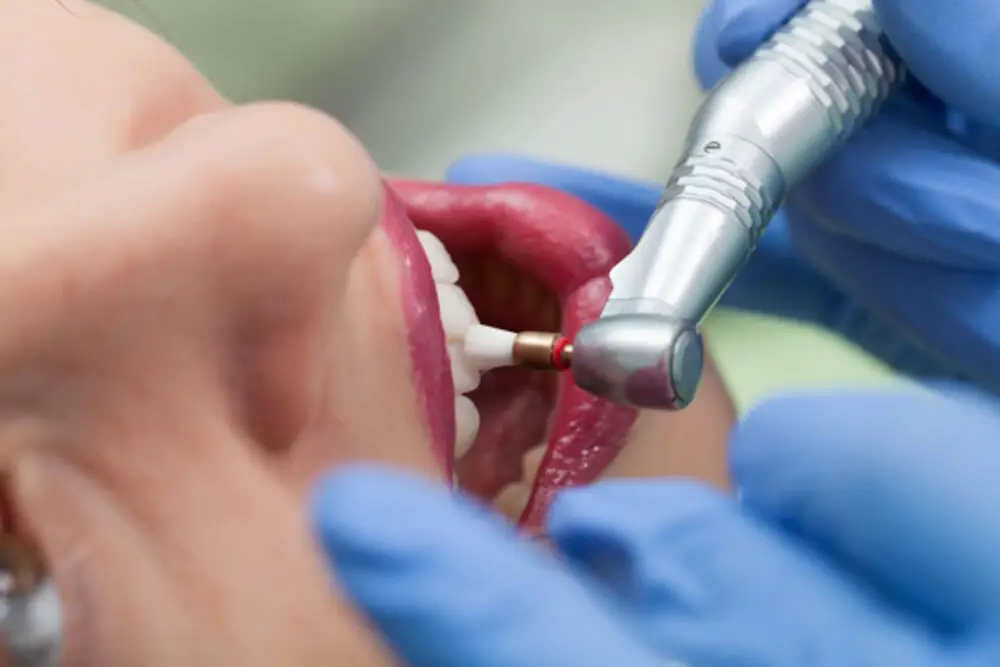
Vitamin C, also known as ascorbic acid, is a powerful antioxidant that plays a crucial role in maintaining dental health. It is essential for the production of collagen, a protein that provides structure to the gums and helps keep the teeth firmly in place. Vitamin C also helps in the repair and regeneration of tissues and reduces inflammation, which is beneficial for gum health. Additionally, it strengthens the immune system, which helps fight off harmful bacteria in the mouth and prevents infections. Inadequate intake of vitamin C can lead to a range of dental problems, including bleeding gums, loose teeth, and tooth loss. It can also increase the risk of gum disease and tooth decay. Therefore, it is important to include vitamin C-rich foods in your diet, such as citrus fruits, strawberries, kiwi, broccoli, and bell peppers. Taking vitamin C supplements can also be an effective way to ensure that you are getting enough of this essential nutrient. By incorporating vitamin C into your dental care routine, you can promote healthy gums and teeth and prevent dental problems.
Vitamin C, also known as ascorbic acid, is a potent antioxidant that plays a crucial role in maintaining dental health. This vitamin is essential for the production of collagen, a protein that forms the structural basis for our teeth and gums. Collagen is responsible for maintaining the integrity of our dental tissues, and without enough vitamin C, collagen production can slow down, leading to weakened gums and tooth decay. Additionally, vitamin C helps boost our immune system, which can fight off harmful bacteria and infections that can cause gum disease. Eating a diet rich in vitamin C-rich foods, such as citrus fruits, leafy greens, and berries, can help keep your teeth and gums healthy and strong.
Vitamin C is a vital nutrient that is essential for numerous body functions, including dental health. Luckily, there are abundant sources of vitamin C that we can easily incorporate into our diets. Some excellent sources of vitamin C include citrus fruits like oranges, lemons, and grapefruits. Other fruits such as kiwi, strawberries, and papaya, are also rich in this nutrient. Vegetables like broccoli, Brussels sprouts, bell peppers, and kale are also great sources of vitamin C. Additionally, fortified cereals and juices can also provide vitamin C. By including these foods in your diet, you can ensure that you get enough vitamin C to improve your overall dental health.
Recommended daily intake is an essential aspect of maintaining good health, and it also applies to dental health. Vitamins play a crucial role in keeping our teeth healthy, and it’s vital to ensure that we consume the recommended daily intake of these vitamins. Vitamin C, for instance, is an antioxidant that helps strengthen the gums and tooth enamel by aiding in the production of collagen. On the other hand, Vitamin D helps the body absorb calcium, which is essential for building and maintaining strong teeth. While it’s important to include these vitamins in our diets, it’s equally crucial to consume them in moderation, as excessive intake can also have adverse effects on our health.
Calcium
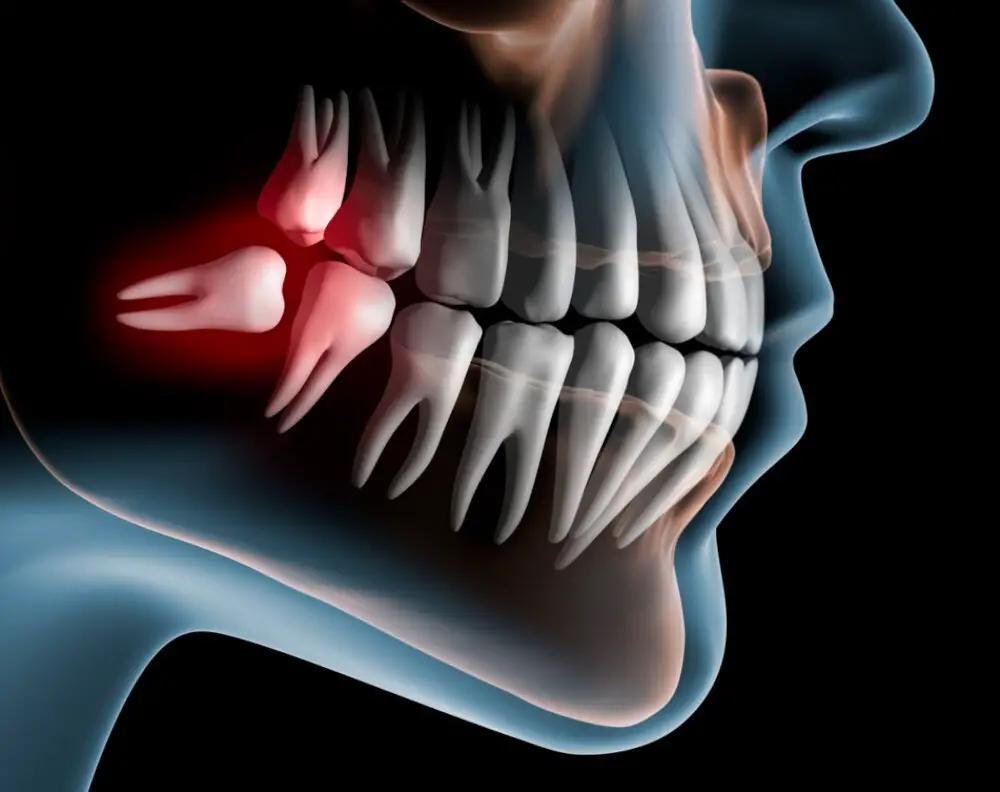
Calcium is a crucial mineral that is essential for the development and maintenance of strong teeth and bones. It plays a vital role in maintaining the integrity of the tooth’s enamel and dentin, which are the protective outer layers of the tooth. A lack of calcium in the diet can lead to tooth decay and other dental problems, as well as bone fractures and osteoporosis. Calcium is also important for maintaining healthy muscle and nerve function, and for blood clotting. Dairy products, such as milk, cheese, and yogurt, are excellent sources of calcium. Other sources include leafy green vegetables, nuts, and fortified cereals. It is important to get enough calcium in your diet, especially during childhood and adolescence when bones are still developing. Adults should aim for a daily intake of 1,000-1,200 milligrams of calcium per day. If you are unable to get enough calcium through your diet, supplements may be necessary. However, it is important to speak with a healthcare professional before starting any new supplement regimen.
Calcium plays a crucial role in maintaining dental health as it is a key mineral that strengthens teeth and bones. Teeth are composed of calcium, and a lack of this mineral can result in weakened tooth structure and increased risk of decay. Calcium-rich foods such as milk, cheese, and leafy greens can help to keep teeth strong and healthy. Additionally, calcium promotes the production of saliva, which helps to neutralize harmful acids produced by bacteria in the mouth. In summary, incorporating calcium-rich foods into your diet can help to maintain optimal dental health and reduce the risk of tooth decay.
Calcium is a vital mineral that plays a significant role in maintaining healthy bones and teeth. It is essential to consume enough calcium-rich foods to meet the daily requirements of this mineral. Some of the best sources of calcium include dairy products, such as milk, cheese, and yogurt. Other sources include leafy green vegetables, such as kale, broccoli, and spinach, as well as nuts and seeds, such as almonds, chia seeds, and sesame seeds. Additionally, fortified foods, such as cereal, orange juice, and tofu, can also provide a significant amount of calcium. Incorporating these foods into your diet can help improve your dental health and prevent tooth decay.
Recommended daily intake is an essential factor in maintaining optimal health. It is crucial to consume the right amount of vitamins and minerals to ensure the proper functioning of the body. When it comes to dental health, there are specific vitamins that play a vital role in maintaining healthy teeth and gums. Vitamin D, for instance, is essential for calcium absorption, which is necessary for strong teeth. Vitamin C is another crucial vitamin that helps boost the immune system and fight off gum disease. It is recommended to consume a well-balanced diet that includes a variety of fruits, vegetables, and whole grains to ensure adequate intake of these essential vitamins. Additionally, taking supplements can also help individuals achieve their recommended daily intake of vitamins and minerals.
Vitamin A

Vitamin A, also known as retinol, is an essential nutrient that plays a vital role in maintaining healthy teeth and gums. It is a fat-soluble vitamin that can be found in animal-based foods such as liver, eggs, and dairy products, as well as in plant-based sources such as leafy greens, carrots, and sweet potatoes. Vitamin A is crucial for the development and maintenance of healthy teeth and gums, as it helps to build strong tooth enamel and prevent gum disease. It also promotes the production of saliva, which is essential for washing away harmful bacteria and protecting the teeth against decay. In addition to its role in dental health, Vitamin A also supports overall immune system function and helps to maintain healthy vision, skin, and bone growth. However, it is important to note that excessive intake of Vitamin A can be harmful and may lead to toxicity. Therefore, it is recommended to get Vitamin A from a balanced diet rather than supplements, and to consult with a healthcare professional before taking any supplements. By incorporating Vitamin A-rich foods into your diet, you can help to boost your dental health and support overall wellness.
Vitamin A, also known as retinol, is a crucial nutrient for maintaining good dental health. This vitamin plays a vital role in the development and maintenance of the enamel, which is the outer layer of the teeth that protects them from decay and damage. Vitamin A also helps to keep the gums healthy, preventing them from becoming inflamed or infected. This nutrient also helps to produce saliva, which is essential for washing away harmful bacteria from the mouth and preventing the buildup of plaque. Moreover, Vitamin A promotes the growth and repair of tissues in the mouth, keeping the teeth and gums healthy and strong. Therefore, including Vitamin A-rich foods such as carrots, sweet potatoes, spinach, and kale in your diet can help to enhance your dental health.
Vitamin A is a crucial nutrient for maintaining good dental health, as it plays a significant role in promoting healthy tooth enamel and preventing cavities. There are two types of vitamin A: retinoids, found in animal products such as liver, eggs, and dairy, and carotenoids, found in fruits and vegetables such as carrots, sweet potatoes, spinach, and kale. Both types of vitamin A are essential for maintaining healthy teeth and gums, as they help to strengthen tooth enamel, fight harmful bacteria, and promote healthy saliva production. By incorporating a variety of vitamin A-rich foods into your diet, you can boost your dental health and enjoy a brighter, healthier smile.
Recommended daily intake is the amount of a specific nutrient that is suggested for a person to consume in a single day. In terms of dental health, there are several vitamins and minerals that are essential for maintaining strong teeth and healthy gums. Vitamin D, for example, helps the body to absorb calcium, which is crucial for building and maintaining strong teeth and bones. Vitamin C is another important nutrient, as it helps to strengthen the connective tissues that hold teeth in place. Other important vitamins and minerals for dental health include calcium, phosphorus, and magnesium. By ensuring that you are getting the recommended daily intake of these key nutrients, you can help to keep your teeth and gums healthy and strong.
In the article, \Boost Your Dental Health: Discover Which Vitamin is Best for Your Teeth,\ several vitamins were discussed that are important for maintaining good dental health. Vitamin D is essential for helping the body absorb calcium, which is necessary for strong teeth and bones. Vitamin C helps to strengthen and protect the gums, while also promoting the production of collagen. Vitamin A is also important for maintaining healthy gums and can help to prevent dry mouth. Finally, vitamin K helps to regulate calcium levels in the body, which is important for maintaining strong teeth and bones. By ensuring that you are getting enough of these vitamins through your diet or supplements, you can help to keep your teeth and gums healthy and strong.
A balanced diet is crucial for maintaining overall health, and it plays a significant role in dental health. Consuming a variety of nutrient-dense foods, such as whole grains, vegetables, fruits, lean proteins, and low-fat dairy products, can help ensure that the body receives the necessary vitamins and minerals for optimal oral health. In particular, calcium and vitamin D are essential for healthy teeth and bones. Vitamin C can also help prevent gum disease by reducing inflammation and promoting the growth of healthy gum tissue. A balanced diet not only supports oral health but also promotes overall wellness, making it a crucial component of a healthy lifestyle.
Conclusion

In conclusion, maintaining good dental health is crucial to overall health and well-being. While brushing and flossing are essential, a well-balanced diet rich in vitamins and minerals is also necessary. Among the various vitamins that contribute to optimal dental health, vitamin D, vitamin C, and calcium stand out as the most vital. Vitamin D helps in the absorption of calcium, which strengthens teeth and bones, while vitamin C helps in the formation of collagen, which is essential for healthy gums. Calcium, on the other hand, is the building block for teeth and bones. Therefore, it is important to incorporate foods rich in these vitamins and minerals into your diet. Additionally, regular dental check-ups and cleanings are also essential in maintaining optimal dental health. By taking care of your teeth and gums, you can ensure a healthy and happy smile for years to come.
